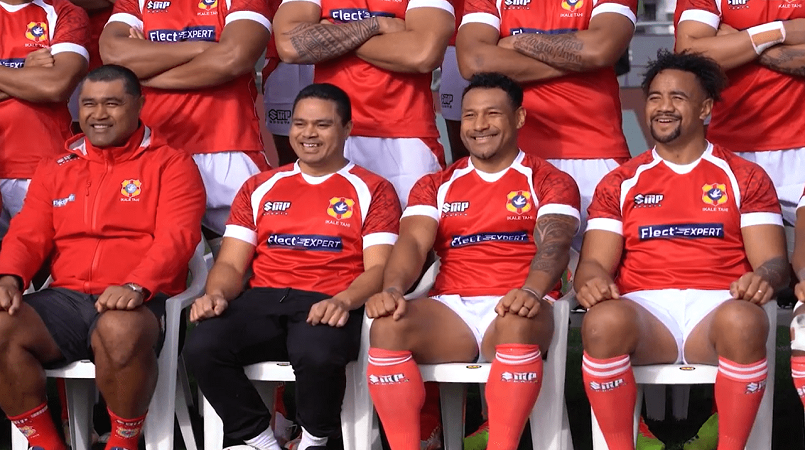
A former Manu Samoa international says a change to World Rugby's eligibility rules will be beneficial to Pacific nations such as Tonga.
A former Manu Samoa international says a change to World Rugby's eligibility rules will be beneficial to Pacific nations such as Tonga.
A player can switch national teams from next year if they were born in the country they wish to transfer to, or have a parent or grandparent born in that nation.
However, the player must stand down from international rugby for three years before changing their allegiance and can only change unions once.
Pacific Rugby Players Welfare Executive Director Mike Umaga says some players are ready to make the switch before the next Rugby World Cup in 2023.
"We're talking about guys like Charles Piutau, Julian Savea, Steven Luatua, George Moala. I think at this stage, Tonga will be the biggest winners at this moment in time and they still have a qualifying match to play, but if you've got stars like that to call on, I think it will be a very exciting time for them.
"But also, we're still two years out, so there will be a few more that will become available."
Former All Black Malakai Fekitoa recently changed his allegiance to Tonga, but had to go through a loophole of playing for the Tongan sevens side in their Olympic qualifier.
Charles Piutau, another former All Black, was also set to make the switch to Tonga, but was unable to play in the Olympic sevens qualifying tournament because it clashed with his club commitments in Europe.
Umaga says the new rugby eligibility rules will give the next generation of players options on who they want to play for.
The new rules will affect Umaga's son Jacob, who was born in England, but has Samoan ancestry.
"It's all about options. Some of them were born here, but we are good at telling the story of our forefathers, which they do buy into.
"I have that situation with my oldest son Jacob, who has been capped for England, but would love nothing more than to put on the jersey of the Manu Samoa, so this could be a reality for him."
Umaga says the next step is to help Pacific rugby unions in their sustainability through revenue share and funding for player development.
"When the Pacific Islands teams are going well, the general public will love to watch them play, but when you're packing out stadiums, that whole 80-90,000 and you don't get any of that, it's a bit of a hard pill to swallow.
"It takes two teams to play a game and if there's nothing coming back, we've got to ask the question why is that and on the flip side of that, not many of the Tier 1 nations tour our Pacific nations so we don't get an opportunity to get any funding back if they come to our shores."
Pacific Advisor for New Zealand Rugby Pakilau Manase Lua says World Rugby has recognised the importance of Pacific players after the eligibility rule change.
"World Rugby's woken up to the fact that if they want the game to be dynamic and to be competitive, they need to re-look at the eligibility rules.
"They saw what's happened with rugby league and Tonga and how Tonga became the giant killers that they were when everybody wrote them off. The same can happen in union."
